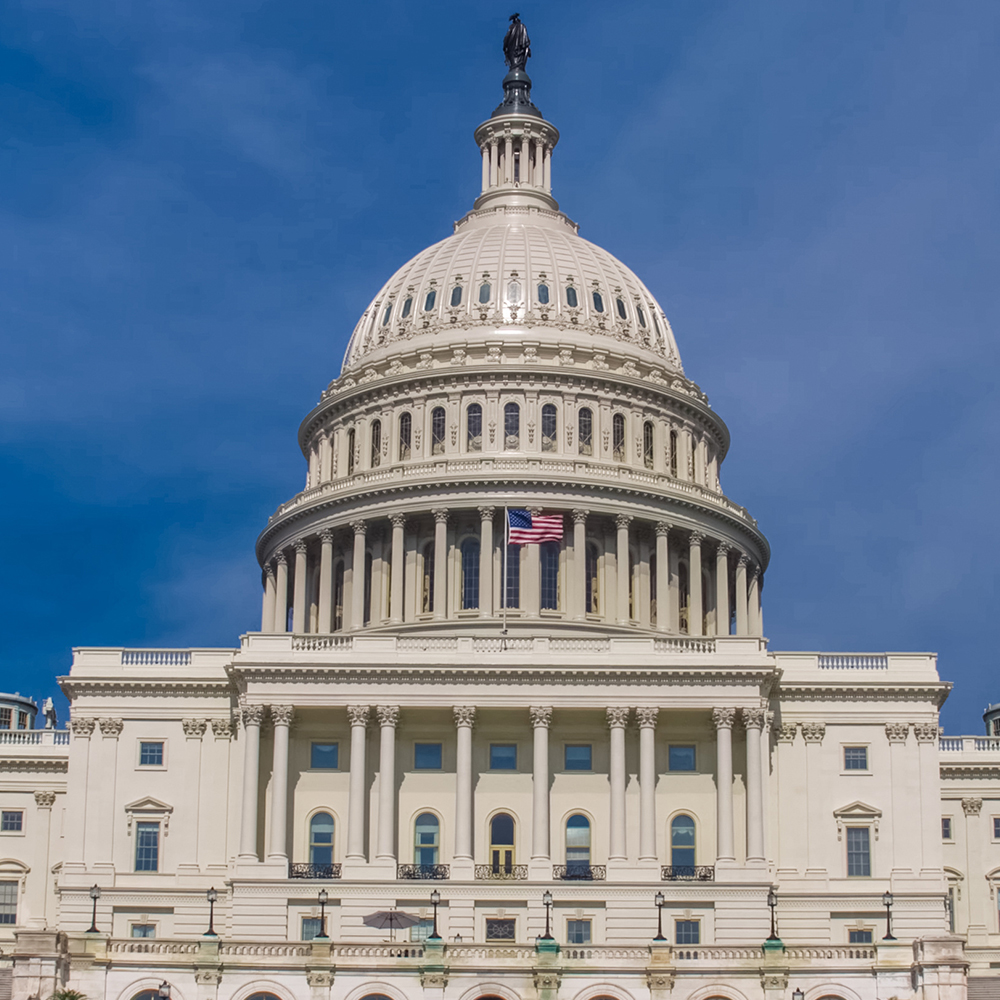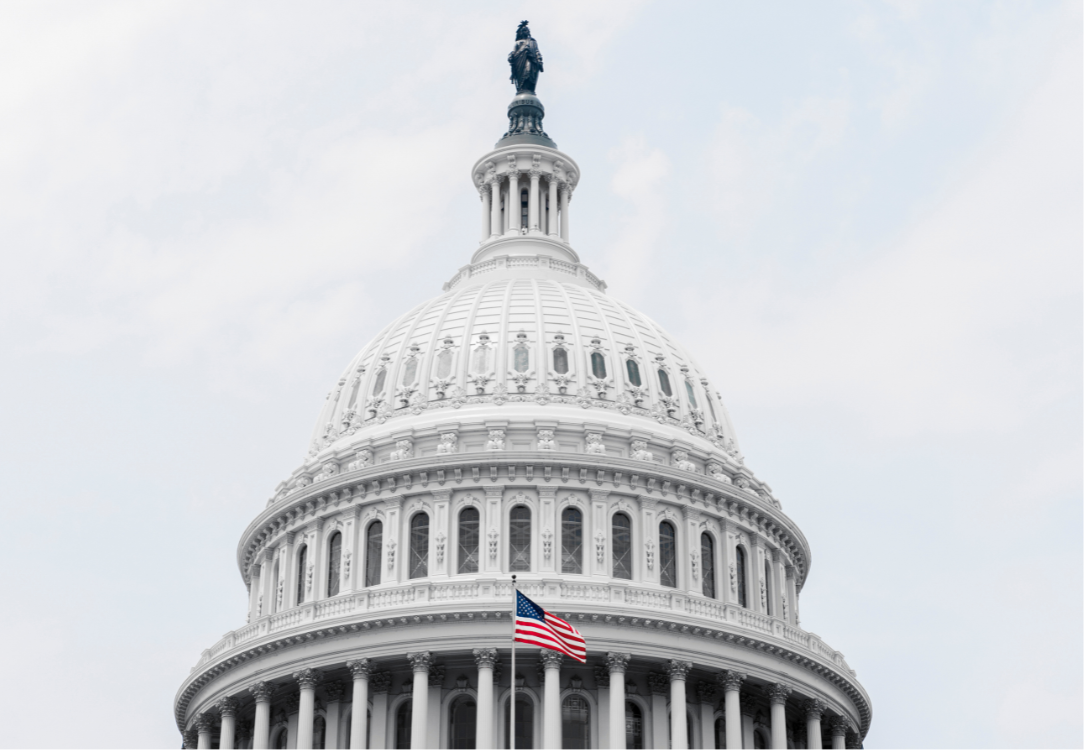The American Rescue Plan Act of 2021
Part I – COBRA Premium Assistance
On March 11, 2021, President Biden signed the American Rescue Plan Act of 2021 (Act). The Act is a $1.9 trillion legislative package that includes pandemic relief for individuals and families. The Act contains several provisions including funding to the Centers for Disease Control and Prevention, stimulus checks, unemployment benefits, the child tax credit, tax credits for paid sick leave and family and medical leave, the Paycheck Protection Program, grants to state educational agencies, and low-income family assistance. The Act also contains several provisions affecting group health plans. This series of Advisors will focus on the provisions affecting group health plans. Below is an overview of the Consolidated Omnibus Budget Reconciliation Act (COBRA) coverage premium assistance provisions contained in the Act.
The Act provides COBRA relief for assistance-eligible individuals. An assistance-eligible individual is an individual who is eligible for COBRA due to the COBRA qualifying event of termination of employment or reduction in hours, except for an individual’s voluntary termination of employment, and if he or she elects coverage during the period beginning April 1, 20201, and ending on September 30, 2021.
COBRA Premium Assistance
COBRA premiums for any period of coverage for an assistance-eligible individual covered under COBRA in the period of time beginning April 1, 2021, and ending on September 30, 2021, will be considered paid (that is, assistance-eligible individuals will not be required to pay the COBRA premiums). If an assistance-eligible individual pays any portion of the COBRA premiums, the amount must be reimbursed within 60 days of the date on which the individual made the premium payment.
Permitted Alternative (Different) COBRA Coverage
If an assistance-eligible individual enrolled in a group health plan experiences the COBRA qualifying event of termination of employment or reduction in hours, other than voluntary employment termination, an employer may choose to offer the COBRA-qualified individual different coverage (in addition to the offer of normal COBRA coverage) that is not the same plan as the plan the individual was covered under at the time the COBRA qualifying event. The individual must elect this coverage no later than 90 days after receiving notice of the option. The premium for this different coverage must not exceed the premium for coverage in which the individual was enrolled in at the time the qualifying event occurred. The different coverage in which the individual elects to enroll in must be coverage that is also offered to similarly situated active employees of the employer at the time the individual elects the different coverage. The different coverage cannot be a) coverage that only provides excepted benefits, b) a qualified
small employer health reimbursement arrangement (QSEHRA), or c) a flexible spending arrangement (FSA). This coverage will be treated as COBRA coverage.
Extension of COBRA Election Period
An individual who a) does not have a COBRA election in effect on April 1, 2021, but who would otherwise be an assistance-eligible individual if an election were in effect; or b) elected COBRA continuation coverage, but discontinued the coverage before April 1, 2021, may elect COBRA continuation coverage during the period beginning April 1, 2021, and ending 60 days after the date on which the administrator of the applicable group health plan (or other entity) provides the additional notification, described below, to the individual. Any COBRA continuation coverage elected by a qualified beneficiary during an extended election period noted above must begin on or after April 1, 2021, and will not extend beyond the maximum period of COBRA coverage that would have applied had the coverage had been elected and maintained without the extension.
Limitation of the COBRA Premium Subsidy
This COBRA premium subsidy will expire upon the earlier of:
- The first date that the individual is eligible for benefits under Medicare or eligible for coverage under any other group health plan (not including coverage that a) only provides excepted benefits, b) is a QSEHRA, or c) is an FSA); or
- The earlier of:
- the date following the expiration of the applicable maximum COBRA coverage period
due to the qualifying event, or - The end of the COBRA period that would have applied had the coverage had been
elected and maintained without the extension.
- the date following the expiration of the applicable maximum COBRA coverage period
An assistance-eligible individual must notify the group health plan when his or her premium subsidy period has expired as noted above. The Act provides that the Department of Labor (DOL) will determine the way the notice must be provided and the deadline by which the notice must be provided.
Notices to Individuals
The required COBRA election notice provided by the plan administrator to individuals that become eligible to elect COBRA continuation coverage during the period of time beginning April 1, 2021, and ending on September 30, 2021, must include an additional written notification (included in the election notice or by a separate document) to the recipient in clear language of the availability of the premium assistance and the option to enroll in different coverage if the employer permits assistance-eligible individuals to elect enrollment in different coverage as described above. In a situation in which the election notice is not required to be provided by the plan administer, the DOL and Department of Health and Human Services (HHS) will provide rules requiring the provision of such notice.
The additional notice must include:
- the forms necessary for establishing eligibility for premium assistance;
- the name, address, and telephone number necessary to contact the plan administrator and any other person maintaining relevant information in connection with such premium assistance;
- a description of the extended election period noted above;
- a description of the obligation of the qualified beneficiary to notify the group health plan when his or her premium subsidy period has expired and the penalty provided under section 6720C of the Internal Revenue Code of 1986 for failure to carry out this obligation;
- a description, displayed in a prominent manner, of the qualified beneficiary’s right to a subsidized premium and any conditions on entitlement to the subsidized premium; and
- a description of the option of the qualified beneficiary to enroll in different coverage if the employer permits the beneficiary to elect to enroll in different coverage.
In the case of any assistance-eligible individual (or any individual who qualifies for an extended election period noted above who became eligible to elect COBRA continuation coverage before April 1, 2021) the administrator of the applicable group health plan (or other entity) must provide, within 60 days after April 1, 2021, the additional notification required above. Failure to provide the additional notice will be treated as a failure to meet the election notice requirement under COBRA.
The Act instructs the DOL, HHS, and the Department of the Treasury to issue models for the additional notification described above no later than 30 days after the enactment of this Act.
The administrator of the applicable group health plan (or other entity) also must provide an assistance-eligible individual a written notice in clear language that the premium assistance will expire soon and must prominently identify the date the assistance will expire and that the individual may be eligible for COBRA or coverage under a group health plan without premium assistance. This notice must be provided no earlier than 45 days before the expiration date of the assistance and no later 15 days before the expiration date. Notice is not required to be provided if an individual’s premium assistance expires due to expiration of the COBRA coverage period or the date that the individual is eligible for benefits under Medicare or eligible for coverage under any other group health plan (not including coverage that a) only provides excepted benefits, b) is a QSEHRA, or c) is an FSA).
The Act instructs the DOL, HHS, and the Treasury to issue models for the premium assistance expiration notification described above no later than 45 days after the enactment of this Act.
Premium Assistance Credit
The employer maintaining the plan that is subject to COBRA (or the plan in the case of a multiple employer plan under Section 3(37) of ERISA; in all other cases, the issuer providing coverage) is entitled to a premium assistance credit against the FICA Medicare tax imposed on it. The amount of the premium assistance credit for each calendar quarter is equal to the amount of premiums not paid by assistance-eligible individuals. The credit allowed for each calendar quarter cannot exceed the tax imposed by Internal Revenue Code (IRC) Section 3111(b), or so much of the taxes imposed under section 3221(a) as are attributable to the rate in effect under Section 3111(b), for such calendar quarter (reduced by any credits allowed against such taxes under Sections 3131, 3132, and 3134) on the wages paid with respect to the employment of all employees of the employer. If the premium assistance credit that an employer is entitled to exceeds this limitation, the excess amount must be treated as an overpayment by the employer and refunded to the employer. The premium assistance credit may be advanced according to forms and instructions provided by the IRS. Note that the IRS will waive penalties for failure to pay the FICA Medicare tax up to the premium assistance credit amount if the IRS determines that the failure was due to the anticipation of the credit. If an entity overstates the amount of credit it is entitled to, this will be treated as an underpayment of the FICA Medicare tax.
No premium assistance credit will be allowed for any amount that is taken into account as qualified wages under the employee retention credit or qualified health plan expenses under the federal paid sick leave and paid family and medical leave credit.
The premium assistance credit applies to premiums and wages paid on or after April 1, 2021.



